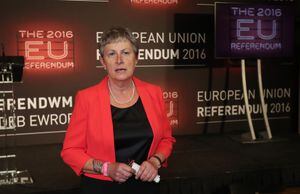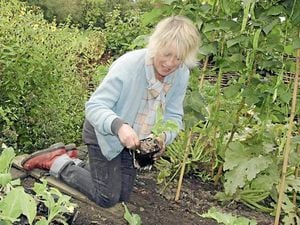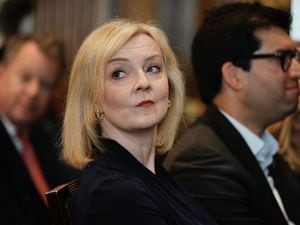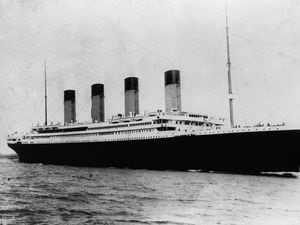Peter Rhodes on ad breaks, a popular peer and coping with the will of God
Read the latest column from Peter Rhodes.

The actor and writer Stephen Mangan says cricket fans are stereotyped by the TV companies who fill the commercial breaks in matches with ads for hair-loss products and erectile-dysfunction remedies. Maybe so. But at least they are not expecting their viewers to drop dead at any moment, as with some of the daytime channels whose ads offer nothing but equity release and funeral-plan insurance.
My go-to station, ITV3, seems obsessed with river cruises and private home care. How many times are we to see the smiling young carer unbuttoning the old codger's shirt or frying him an egg? I can't be the only viewer who has constructed an alternative story. The old codger is a Mafia godfather in hiding. The carer is a Mob hit-woman, out to assassinate him with an excess of cholesterol or a nasty chill. Another few eggs, Mr Corleoni? And shall we lose the shirt . . ?
Delighted to see the former Labour MP and staunch Brexiter Gisela Stuart appointed to the House of Lords. She is brave, honest and straightforward. In a perfect world, every time a new peer is created who is clearly an asset to the grossly overcrowded House, five useless peers should be chucked out. We can but dream.
I had a colleague who covered the first Gulf War when Saddam Hussein invaded Kuwait. As an unaccredited “unilateral,” he was free to roam the front and attached himself to a friendly Egyptian battalion. As the days passed he noticed that when the drill-alarms rang, the Egyptians would not bother to don their chemical-warfare suits or gas masks. Why not? “Inshallah,” (“If it is the will of God . . . . “) they explained brightly. Like all good Muslims those Egyptian soldiers believed their lives, and deaths, were written by a higher power. Whatever happened was the will of God.
That philosophy may create brave soldiers but it's causing problems for community leaders in some British inner-city areas hit hard by Covid-19. Manzoor Moghal, chairman of the Muslim Forum in Leicester, says this “fatalistic” view makes people adopt a dangerously relaxed approach to the virus.
But non-Muslims are not entirely innocent. When we see thousands of Brits packing pubs or beaches regardless of social-spacing warnings, some of them are displaying the Anglo-Saxon version of Inshallah, as used by soldiers to describe the bullet waiting for them, “if it's got your number on it.” (The others don't believe there is a bullet and are plain thick).
My personal risk philosophy is based on a tip 30 years ago from the legendary Vietnam War cameraman Erik Durschmied who simply advised putting the maximum density between yourself and danger. He told me: 'Luck is a thick brick wall. There's nothing else. If you live or die depends on which side of the wall you are.” Even as a wicked old atheist, I'm tempted to add, God willing.





